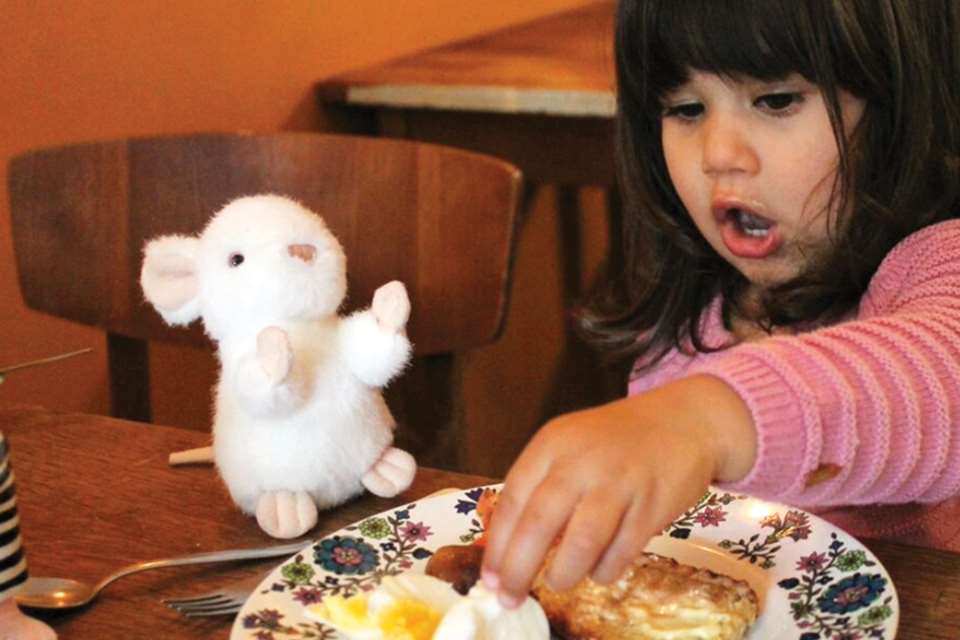Positive Relationships: Parenting Programmes - Taking the strain
Annette Rawstrone
Monday, April 17, 2017
Fortunately for those parents struggling to cope with their child’s behaviour, there are programmes to help, reports Annette Rawstrone

For some parents, simply walking to nursery is stressful because their child doesn’t listen to instructions and randomly runs off. At home their child won’t settle long enough to watch a TV programme or do a simple jigsaw, and the behaviour strategies that work with their siblings are ineffective.
It can be stressful, worrying and isolating for families coping with these behaviours, which are commonplace in children with attention deficit hyperactivity disorder (ADHD), but there is help available.
The New Forest Parenting Programme (NFPP) has been specifically developed for the management of ADHD-type symptoms – which include inattentiveness, hyperactivity and impulsiveness – in pre-school children. While many parents start noticing these symptoms at an early age, most cases of ADHD are not diagnosed until children are six to 12 years old, leaving a negative impact on family life and children who are not starting school ready to learn.
‘Parents can become desperate because they don’t know how to parent their child and it can lead to relationship issues because the parents are struggling. In some instances other health professionals have suggested basic parenting techniques, but they’ve not worked because the child is not sleeping well or not listening well enough to engage,’ says Anna Masding, NFPP lead for Nottingham City, which has run the programme since 2014.
‘Parents I work with say that other people don’t understand; family members can be judgemental and say that they need to be stricter, but that’s not what the child needs. They need a different approach.’
ADAPTATION
NFPP has been developed over 24 years to help parents support children with early signs of attention and concentration problems. NFPP co-developer Cathy Laver-Bradbury explains that it aims to provide parents with a ‘toolkit of skills’ that they can use with their children when necessary. It is delivered by trained therapists – including nursery nurses, family support workers and child and adolescent mental health (CAMH) workers – in the home for eight weeks, or in group sessions with up to 12 families for six to eight weeks. A self-help manual is also available on Amazon and there are plans to launch online training for parents.
‘Parents need different interventions at different times so we are trying to make the programme adaptable in multiple ways,’ explains Ms Laver-Bradbury.
Through NFPP, parents learn about the nature of ADHD and how to manage their child’s behaviour through games that engage children’s attention, encourage their patience and increase their concentration. ‘There is social learning and attachment theory so it works like other parenting programmes, but it is unique in that the programme also coaches the parents to coach their children,’ says Ms Masding.
‘They can practice play techniques to improve children’s concentration and memory at the child’s pace. It’s a very different model and approach because it’s not just around behaviour and the importance of play, but structures and routines. We video them playing with their children so that they can see what is happening – what went well, what are the children’s needs and what would they do differently next time?’
NFPP helps parents to teach their children the skills that others easily learn, such as strategies to ensure the journey to the shops is safe by preparing them to follow routines and ensuring that parents have eye contact with their child when giving an instruction. Activities can include showing parents how to scaffold play with a child and gradually challenge them to complete a four-piece jigsaw puzzle or play card games such as Snap and Matching Pairs, which may help the child’s working memory and increase their ability to take turns.
‘Imagine if a child can’t listen or the mum tries to give them a nice cuddle but they can’t sit still. The relationship becomes more strained and we know it can affect parent-child relationships. But if a parent is well supported and understands why the child is behaving in that way then they will work harder to form a relationship, even if it is very testing,’ says Ms Laver-Bradbury.
‘Most children take longer to learn behaviour strategies, so parents can become unconfident and try different things, which can be confusing for the child. We give them the confidence to keep going and be consistent.’
EMPOWERMENT
NFPP received a strength evidence rating of three-plus out of four in an Early Intervention Foundation report and was found to be a medium-cost intervention, scoring three out of five. Following course participation, the parent/child relationship has been found to improve in the short term. Children are better able to regulate their own behaviour and parents experience less stress. In the longer term, children can concentrate for longer periods and their behaviour improves. Ultimately, children are expected to do better in school.
In Nottingham City, many parents score highly on the Family Strain Index before completing the programme because of the stress, worry and embarrassment of their child’s behaviour. By the end of the intervention this has reduced, which Ms Masding attributes to them feeling empowered and in control.
‘It is not a miracle, it doesn’t work overnight but it does have an impact. There is success when parents engage in the programme and there is consistent delivery. The outcomes for the child are much more positive and the impact on family relationships, including siblings, is also positive. The children are able to do much more than before – to sit and concentrate and are ready for school – while parents feel they are not getting at the child all the time, saying no and telling them off. Instead they can give clear instructions and follow them up with reminders. The programme allows children to developmentally progress,’ she says.
‘We aim to offer this programme as early as possible, when the niggles in a child’s behaviour begin. Then we can prevent their behaviour escalating. There are some families that need longer-term support and go on to get an ADHD diagnosis, but for many it can really have an impact on managing their child’s ADHD symptoms. Parents get to know what works for their child and can manage the behaviour. It’s empowering.’
FOUNDATIONS FOR LIFE
Foundations for Life: What Works to Support Parent Child Interaction in the Early Years by the Early Intervention Foundation assesses programmes to improve child outcomes through positive parent-child interaction.
The 75 programmes, all available to UK commissioners, were identified in the Best Start at Home review and are rated out of four according to an assessment of the evaluation evidence, with four being strong; and out of five for the relative input costs, with five being high cost. It focuses on programmes to promote attachment, behaviour and early cognitive and language development.
The report found that if commissioned, targeted and implemented carefully, many of these programmes have the potential to enhance development and tackle problems identified in the early years, such as improving behaviour and achievement and preventing mental health problems.
OTHER BEHAVIOUR PROGRAMMES
TRIPLE P
The Triple P – Positive Parenting Program – gives parents simple and practical strategies to help them build strong, healthy relationships, manage their children’s behaviour and prevent problems developing. It currently runs in 25 countries with more than 20 programmes. The system has been designed so parents get the amount of help they need – from tips to help them through a bedtime routine to intensive support for more serious behavioural problems. Whatever the programme, one of the main goals is to help parents become self-sufficient and confident enough to use and adapt the parenting strategies in a range of situations without needing constant or ongoing support from a practitioner.
Matt Buttery, chief executive of Triple P UK, says, ‘From more than 35 years of Triple P research around the world, we know that children who grow up with positive parenting are more likely to develop the skills they need to do well at school, build friendships and feel good about themselves. They’re less likely to develop emotional and behavioural problems when they get older. Parents who use positive parenting feel more confident, less stressed, less depressed and have less conflict with their partners over parenting issues.’
The Early Intervention Foundation found Triple P low cost to set up and deliver, with a rating of one out of five, and it scored three-plus for the strength of evidence of child outcomes.
HELPING THE NONCOMPLIANT CHILD
Helping the Noncompliant Child is for parents who are having difficulties managing the behaviour of a child aged from three to eight years old. It is aimed at families where the child’s behaviour is severely disruptive and undermining the parent/child relationship. It aims to give parents advice and strategies for improving relations with their children while reducing family conflict.
The parent and child attend between five and 12 intensive individual weekly sessions, lasting up to 75 minutes, where they learn how to manage unwanted behaviour including ADHD symptoms, to techniques such as giving clear instructions and active ignoring. Parents also complete homework exercises and monitoring sheets to track their progress.
Helping the Noncompliant Child has initial evidence of improving children’s behaviour from several evaluations, including one randomised controlled trial. The Early Intervention Foundation rated this programme a three for the strength of evidence of child outcomes. It was estimated to be medium-cost to set up and deliver, scoring three out of five.
MORE INFORMATION
- Early Intervention Foundation, www.eif.org.uk
- Triple P, www.triplep.net
- ‘Strongest link’ by Annette Rawstrone, Nursery World, 20 March 2017
[asset_library_tag 1462,Download the pdf]








